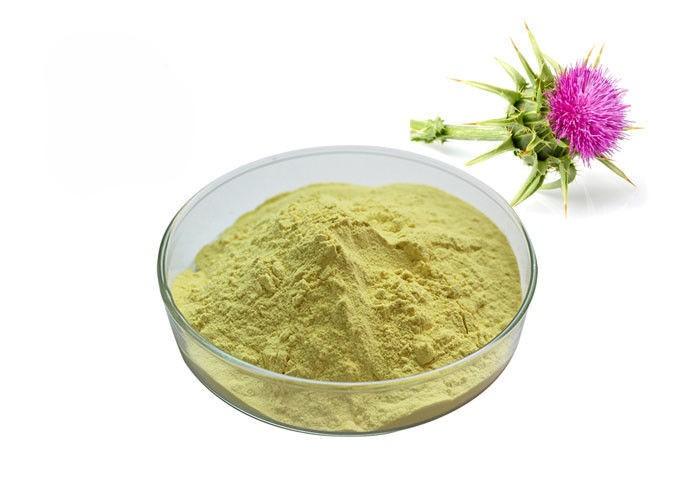Milk thistle supplements market is witnessing significant growth due to increasing consumer awareness about liver health and natural remedies. Companies are implementing various market-winning strategies to gain a competitive edge, enhance brand value, and expand their consumer base. The following strategies highlight key approaches adopted by players in the milk thistle supplements market.
Product Innovation and Differentiation
- Companies focus on introducing unique formulations, such as combining milk thistle extract with other herbal ingredients.
- Research and development investments drive new product launches with enhanced bioavailability.
- Use of advanced extraction techniques ensures higher potency and effectiveness.
- Organic and non-GMO certifications attract health-conscious consumers.
- Formulations catering to specific health benefits, such as detoxification and liver support, create niche segments.
Brand Positioning and Awareness
- Strong branding helps establish credibility and trust among consumers.
- Educational campaigns inform customers about the benefits of milk thistle supplements.
- Collaborations with healthcare professionals increase brand credibility.
- Influencer and social media marketing enhance visibility and consumer engagement.
- Certifications from reputed organizations add to the brand’s authenticity.
E-commerce Expansion and Digital Presence
- Companies optimize their online presence through e-commerce platforms and direct-to-consumer websites.
- Subscription models ensure consistent customer retention and brand loyalty.
- Data-driven marketing strategies personalize customer experiences and product recommendations.
- Multi-channel retail strategies integrate online and offline distribution.
- Search engine optimization (SEO) and paid advertisements drive online visibility.
Pricing Strategies and Competitive Edge
- Companies adopt value-based pricing to justify premium product positioning.
- Discount strategies and promotional offers attract new customers.
- Bulk purchase discounts encourage long-term consumer commitment.
- Competitive analysis helps brands position their products effectively in the market.
- Cost-effective manufacturing methods help maintain profitability without compromising quality.
Regulatory Compliance and Quality Assurance
- Compliance with global health regulations builds consumer trust.
- Third-party lab testing ensures product purity and safety.
- GMP (Good Manufacturing Practices) certification strengthens credibility.
- Transparent labeling provides clear information about product ingredients.
- Regular audits and quality checks enhance product reliability.
Sustainability and Ethical Sourcing
- Eco-friendly packaging solutions appeal to environmentally conscious consumers.
- Ethical sourcing of milk thistle ensures sustainability in supply chains.
- Carbon footprint reduction initiatives align with global sustainability goals.
- Partnering with fair-trade suppliers supports ethical business practices.
- Corporate social responsibility (CSR) initiatives enhance brand reputation.
Targeted Marketing and Consumer Segmentation
- Companies tailor their marketing strategies based on consumer demographics.
- Personalized email marketing boosts customer engagement and sales.
- Health and wellness communities serve as platforms for targeted advertising.
- Data analytics help identify emerging consumer preferences.
- Seasonal and event-based promotions maximize sales potential.
Product Accessibility and Distribution Networks
- Expansion into international markets increases revenue streams.
- Partnering with pharmacies and health stores enhances product availability.
- Subscription-based delivery models improve customer convenience.
- Direct selling strategies reduce dependency on third-party distributors.
- Efficient supply chain management minimizes delivery delays.
Customer Engagement and Loyalty Programs
- Reward programs incentivize repeat purchases and brand loyalty.
- Customer feedback mechanisms help improve product offerings.
- Engaging content, such as blogs and webinars, educates consumers.
- Exclusive memberships provide access to special discounts and offers.
- Social media interaction fosters a strong community of brand advocates.
Scientific Research and Clinical Studies
- Investment in clinical trials validates product efficacy.
- Publishing research findings enhances brand credibility.
- Partnerships with research institutions strengthen product innovation.
- Scientific backing differentiates brands in a competitive market.
- Evidence-based marketing appeals to health-conscious consumers.
Retail Partnerships and Collaborations
- Collaborations with supermarkets and wellness stores expand product reach.
- Joint ventures with complementary supplement brands create cross-selling opportunities.
- Strategic partnerships with fitness centers target health-focused audiences.
- In-store promotions increase product trial rates.
- Exclusive retail agreements secure shelf space in premium outlets.
Localization Strategies for Market Expansion
- Adapting packaging and labeling to local languages enhances accessibility.
- Understanding cultural preferences tailors marketing approaches.
- Regional pricing strategies cater to diverse consumer segments.
- Compliance with local regulations facilitates smooth market entry.
- Establishing local production facilities reduces supply chain costs.
Artificial Intelligence and Technology Integration
- AI-powered chatbots enhance customer service efficiency.
- Predictive analytics optimize inventory management.
- Augmented reality (AR) applications provide interactive product information.
- Blockchain technology ensures transparency in ingredient sourcing.
- Machine learning helps personalize product recommendations.
Health and Wellness Trends Influence
- Growing preference for herbal supplements boosts demand.
- Increased awareness of liver health drives market expansion.
- Fitness and detoxification trends create niche consumer groups.
- Rising vegan and plant-based movements increase product adoption.
- Stress management supplements incorporating milk thistle gain popularity.
Strategic Mergers and Acquisitions
- Companies acquire smaller brands to expand market share.
- Mergers lead to shared research and development efforts.
- Acquisitions strengthen global distribution networks.
- Diversified product portfolios cater to a broader consumer base.
- Strategic investments enhance competitive positioning.

